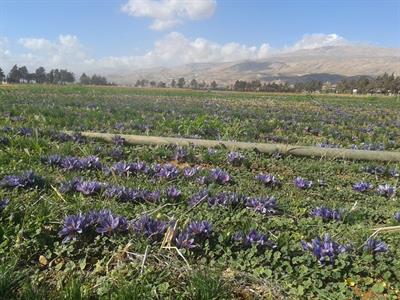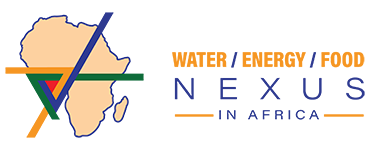Submission Deadlines
Abstract- 30 April 2021
Manuscript- 31 August 2021

Description of Research Topic
Primary resources gaps facing dryland, including access to water, food, energy, nutrition, and health care, are expected to increase with demographic, political, and climatic changes. These highly interlinked primary resources carry high risk and vulnerability. Disentangling these to better understand the complex system of systems they represent is crucial, and requires multi-disciplinary work that includes the technologies, science, policies, health, communication, and economics, at both local process and system level scales.
In 2018, the American University of Beirut (AUB) launched WEFRAH, one of the biggest research community in the MENA region: the Water-Energy-Food Health (WEFH) Nexus Renewable Resources Initiative. This university-wide initiative led by the Faculty of Agricultural and Food Sciences at AUB includes a critical mass of faculty from across the university and the disciplines. WEFRAH’s focus is collaboration to achieve primary resource security. Its core conviction is that achieving water, energy, and food security, as well as improving health, harmonizing human activity with nature, and implementing integrated solutions all require holistic and systems level thinking. The initiative responds to the vision of engagement and impact to strengthen collaborations between Faculties and Schools, particularly to promote interdisciplinary collaboration by nurturing a bottom-up, participatory approach within the academic institution and between the institution and its external stakeholders.
WEFRAH, therefore, opens venues for collaborations, and its outcome- and action-oriented approach links naturally and organically to the Sustainable Development Goals (SDGs) 2030 by presenting a contextualized, relevant approach to their achievement in the MENA region. During and after the COVID-19 pandemic, WEFRAH is positioned to become more valuable as it demands to include all resources for the development of solutions to secure access to resources in this region. This Research Topic will welcome manuscripts on the following sub-topics:
1. Introductory perspectives on the Nexus in drylands
2. Approaches to integrating the WEFH nexus in drylands
3. Health as a resource and its contribution to the Nexus
4. Artificial Intelligence (AI), Machine Learning (ML), and Internet of Things (IoT) applications in agriculture in drylands
5. Machine learning approaches to reduce water and energy consumption
6. Renewable energy and climate controls for sustainable agri-food systems
7. Circular and sustainable food production systems
8. Antibiotics and their fates in the environment (soils, water, and plants), and technologies for their removal
9. Pastoralism and drylands ecosystems
10. Healthy, sustainable, and safe diets
11. Food and water waste management
12. Harmonizing digitized economies with traditional know-how in the WEFH domains
13. Building climate resilience in drylands
14. Climate smart agriculture in drylands
Guidance for authors regarding keywords for each Guest Associate Editor:
Rabi H. Mohtar: nexus analytics, tradeoffs, water and food security
Mirella Aoun: food production systems, sustainable agriculture, plant sciences
Chrysi Laspidou: nexus informatics, nexus modelling, system dynamics modeling
Bassel Daher: WEF nexus governance, nexus stakeholder engagement, nexus analytics
Keywords: integrated solutions, MENA, drylands
Important Note: All contributions to this Research Topic must be within the scope of the section and journal to which they are submitted, as defined in their mission statements. Frontiers reserves the right to guide an out-of-scope manuscript to a more suitable section or journal at any stage of peer review.
Top Editors
- Rabi H. Mohtar, American University of Beirut and Texas A&M University
- Mirella Aoun, American University of Beirut
- Bassel Daher, Texas A&M Energy Institute
- Chrysi S. Laspidou, University of Thessaly
Click here for more information.
